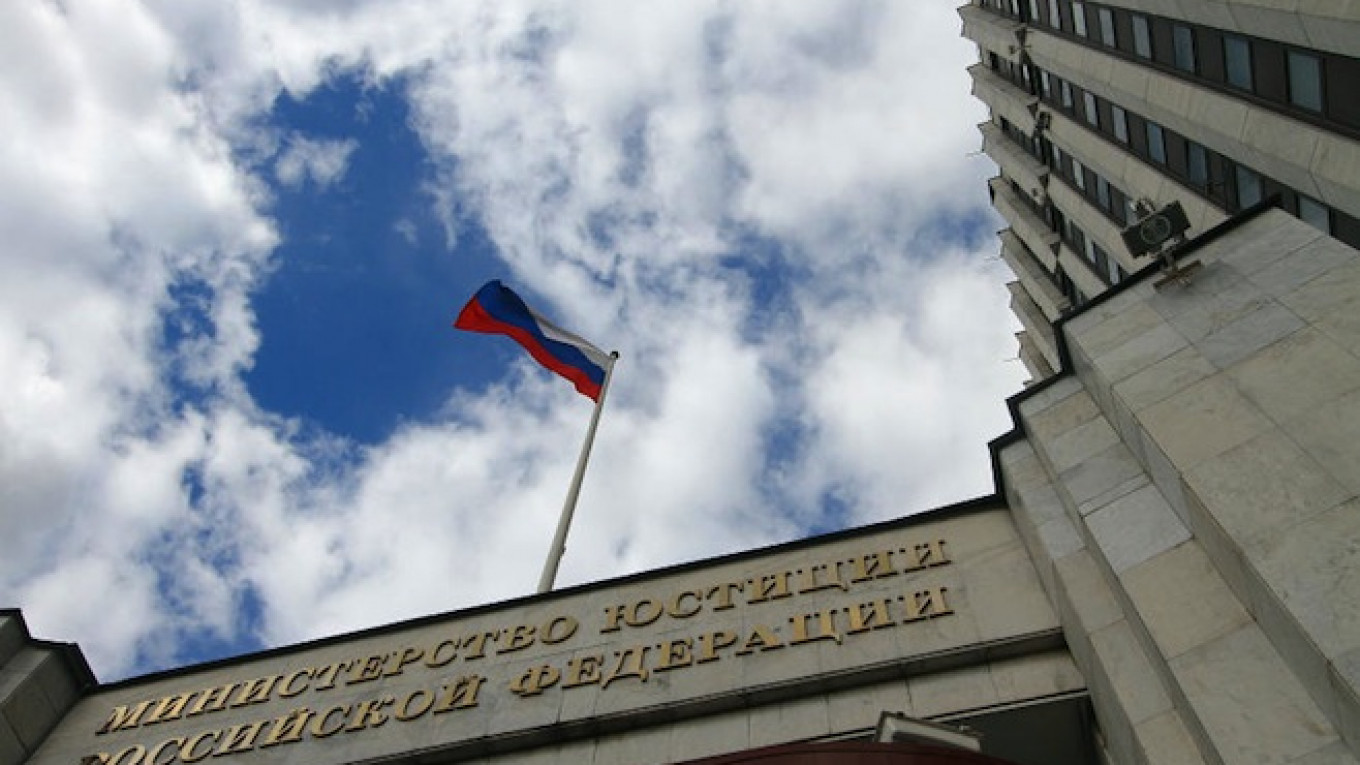The State Duma's endorsement of a bill that would ban the activities of foreign nongovernmental organizations should they be viewed as national threats further constricts Russian civil society, while reinforcing the state narrative of the ubiquity of foreign enemies, critics of the initiative have said.
An overwhelming majority of Russian lawmakers voted in favor of the bill in its second reading on Friday, supporting legislation that would prohibit the work of foreign NGOs viewed as "a threat to the foundations of the constitutional system of the Russian Federation, its defense capabilities and its national security," according to a copy of the bill published on the Duma's website. Only three of the 445 lawmakers who voted on the bill cast their ballot against it, the RBC news agency reported.
The bill, approved in its first reading in January, emerged against the backdrop of lingering tensions between Russia and the West over the Ukraine crisis, marked by mutual economic sanctions and rhetorical jabs. But the bill targets Russian political and rights activists, which are widely smeared as foreign-sponsored enemies of the state, more than it does the foreign institutions themselves, according to international rights groups.
"This bill cuts Russian activists off from the international community of human rights organizations," said Tanya Lokshina, a Moscow-based senior Human Rights Watch researcher. "This is our primary concern."
The bill outlines the administrative charges activists and NGOs could face for violating the law against "undesirable organizations," as well as the criminal charges that persistent violations could warrant. Two administrative charges of involvement with an "undesirable" foreign NGO within a one-year period could lead activists to face up to 500,000 rubles ($10,000) in fines or up to six years behind bars, the bill stipulates.
According to Lokshina, Russian activists and NGOs could bear the brunt of these punishments due largely to the fact that the text of the legislation is unclear with regard to what constitutes cooperation or involvement with "undesirable organizations."
Russian activists' communications with such organizations, their participation in international events coordinated by these "undesirable" groups or dissemination of their materials on social media could potentially be viewed as involvement and lead to criminal prosecution, Lokshina noted.
An initial version of the bill presented to the Duma in January proposed targeting all foreign and international organizations seen as posing a threat to the state's security, public order or the health of its population. Following amendments made to the text prior to the second reading, the bill's focus has narrowed to NGOs. The current version is expected to be adopted in its third and final reading later this week.
Lawmaker Anton Ischenko, one of the bill's authors, told The Moscow Times that the amendment limiting its scope to NGOs would prevent international organizations such as the United Nations and its specialized agencies such as UNESCO from being affected by the legislation. Although the bill singles out nongovernmental groups, Ischenko did not rule out the possibility that commercial organizations could land on the list of "undesirable organizations" as well, which will be maintained by the Justice Ministry.
"Law enforcement must have the power to stop the organizations that undermine state security," Ischenko said Sunday. "This type of law is always needed, not only in the current international political climate."
In accordance with the proposed legislation, the Prosecutor General's Office would be responsible for deciding whether or not an organization is "undesirable" using evidence provided by other federal bodies including law enforcement and security agencies.
Opposition lawmaker Dmitry Gudkov, one of the three deputies who voted against the bill, warned in a video address last week that in addition to violating civil rights, legislation on "undesirable organizations" could exacerbate capital flight from the country and worsen the investment climate.
The bill follows on the heels of another law that has led the Kremlin to tighten its grip over domestic NGOs. In 2012, the country adopted legislation requiring any nongovernmental organization that receives foreign funding and engages in loosely defined political activity to voluntarily adopt the politically loaded label of "foreign agent," and to register accordingly with the Justice Ministry. The Justice Ministry was later given the right to unilaterally impose the "foreign agent" label on NGOs reluctant to adopt the designation. Sixty-two Russian NGOs currently feature on the Justice Ministry's "foreign agents" list.
Contact the author at g.tetraultfarber@imedia.ru
A Message from The Moscow Times:
Dear readers,
We are facing unprecedented challenges. Russia's Prosecutor General's Office has designated The Moscow Times as an "undesirable" organization, criminalizing our work and putting our staff at risk of prosecution. This follows our earlier unjust labeling as a "foreign agent."
These actions are direct attempts to silence independent journalism in Russia. The authorities claim our work "discredits the decisions of the Russian leadership." We see things differently: we strive to provide accurate, unbiased reporting on Russia.
We, the journalists of The Moscow Times, refuse to be silenced. But to continue our work, we need your help.
Your support, no matter how small, makes a world of difference. If you can, please support us monthly starting from just $2. It's quick to set up, and every contribution makes a significant impact.
By supporting The Moscow Times, you're defending open, independent journalism in the face of repression. Thank you for standing with us.
Remind me later.


